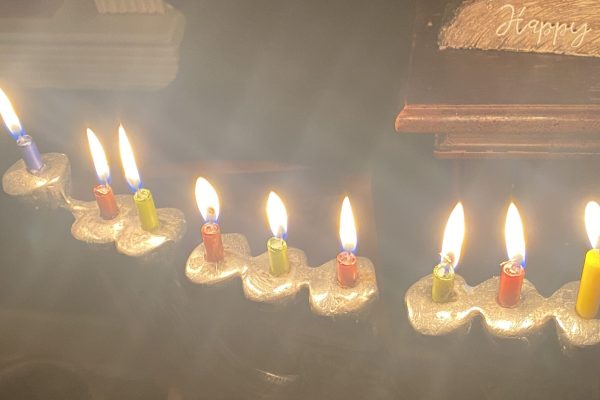“Bendigamos” is the Ladino version of the traditional Hallel and is sung on the seventh night of Hanukkah, which falls this year on Wednesday night, Dec. 16, 2020.
Hanukkah is the only Jewish festival whose holy day observance crosses two Hebrew months. It is the night when the Jewish month changes from Kislev to Tevet. This night also commemorates Rosh Hodesh or “head of the month.”
It is traditional for women to celebrate this night with a Hag HaB’not, or “Festival of the Daughters,” a special celebration where women and girls are honored. While the Hanukkah candles burn, the women and girls relax as the men serve the snack – traditionally an artichoke, olive spread. And because it is Rosh Hodesh, the renewal of a new month begins with the eating of a spicy hard-boiled egg salad, similar to what we call “deviled eggs.”
In Sephardic or Spanish (Mediterranean) Jewish homes, the oldest woman in the family traditionally gives a gift of a piece of family jewelry to the youngest girl in the family. Over the years, this tradition has evolved to include a jewelry gift exchange among all the women and girls.
Hag Hanukkah Sameakh, Hag HaB’not Sameakh
It’s a beautiful song to sing together. The language is Ladino, which is a combination of Hebrew and Spanish, and it is the language of the Mediterranean and Mexican Jews, just as Yiddish is the language of the Jews of central and eastern Europe.
*Photo of Rabbi Barbara leading Hanukkah singing by Dominico Pulice.
Bendigamos al Altísimo
Bendigamos al Altísimo,
Al Señor que nos crió,
Démosle (a)gradecimiento,
Por los bienes que nos dió.
Alabado sea Su Santo Nombre,
Porque siempre nos apiadó,
Odu Ladonai ki tov,
Ki leolam jasdo.
Blessed is the One most high,
The Lord who created us,
Let us give thanks
For all of the good things given us
Praised is His Holy Name
For He has always had mercy on us.
Blessed is the Lord for He is good,
For His mercy endures forever.












One Response
Mahalo. Thank-you. Toda Roba. For including Sefardic customs.